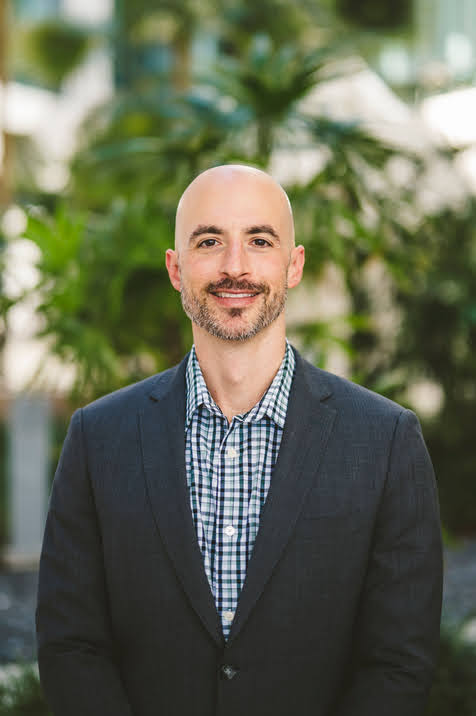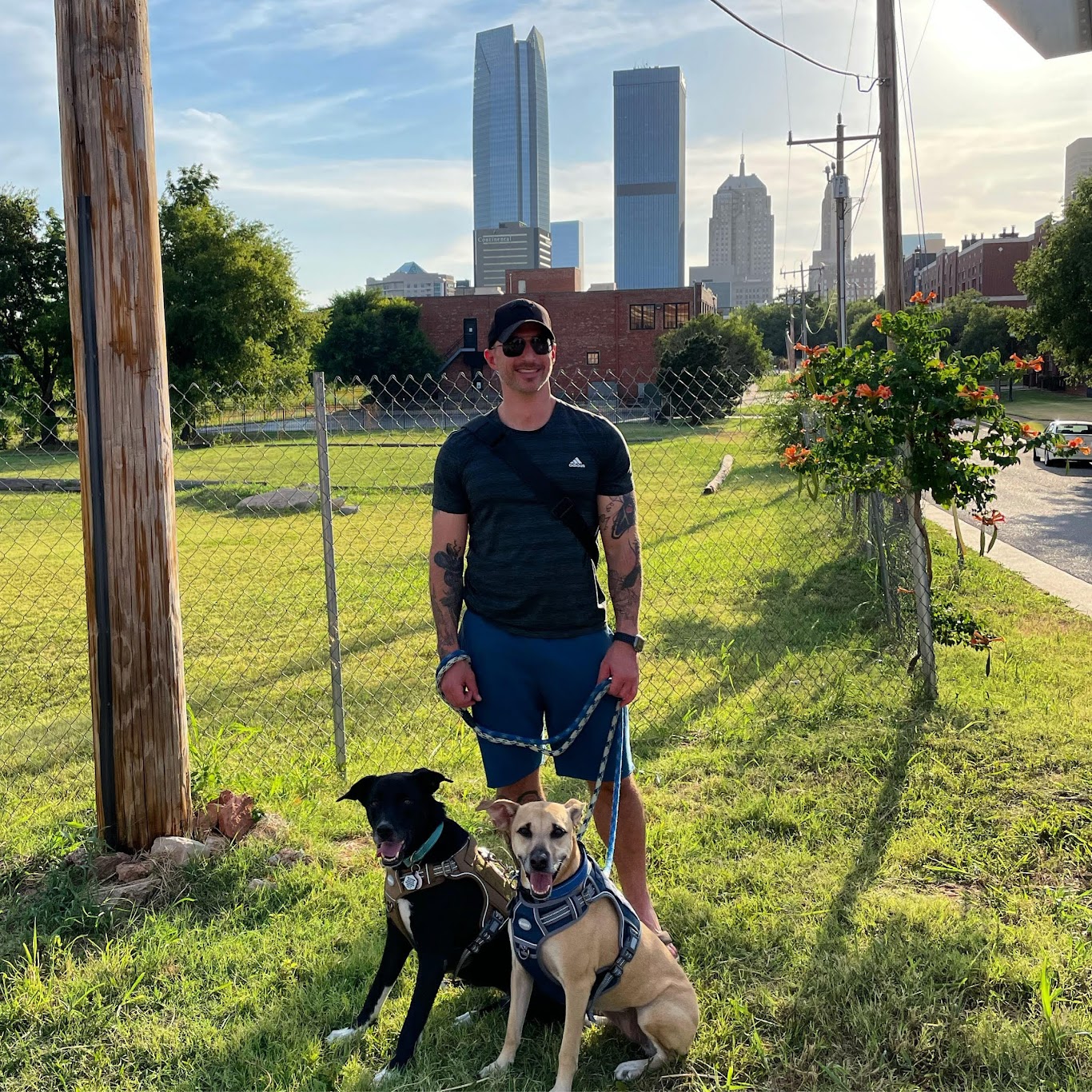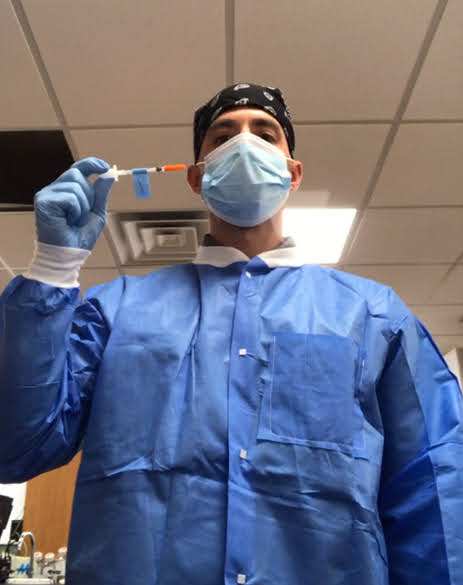From coast to campus: welcoming new faculty Dr. Mike Anastario

The Center for Health Equity Research is proud to welcome our newest faculty member – Dr. Michael (Mike) Anastario. Anastario is joining us as an Assistant Professor of Health Sciences. We are excited to see how Mike’s interests and research expertise intertwine with the amazing work of this Center and beyond.
As Mike road-tripped across the country, numerous audiobooks narrated the winding highways as he got closer and closer to his destination – Flagstaff, Arizona. Anastario mentioned listening to The Radium Girls by Kate Moore as he drove over the Arkansas border into Oklahoma. The stories included in the book relate to Anastario’s current research in health disparities and harm reduction, and he is hoping to engage in research at Northern Arizona University (NAU) that informs change.
Getting to know Dr. Mike Anastario
What is your highest priority upon starting at NAU?

Continuing a practice of attentiveness to epistemic negligence in public health is my highest priority. By epistemic negligence, I am referring to unintentional “blind spots” that develop in how public health knowledge is produced and managed. Culturally inappropriate ways of knowing, studying and listening to people from marginalized backgrounds who tell stories about their health is an example of what I mean by epistemic negligence. Epistemic negligence includes systematically forgetting populations that suffer excess disease burdens, a process contingent with the reproduction of collective ignorance. I believe that epistemic negligence is also responsible for conundrums that emerge in classrooms, where some educators tend to valorize evidence-based interventions while expressing disdain for the very practice of research that produces knowledge in public health. Students with goodwill who attempt to navigate this conundrum may wind up getting derailed from pursuing careers in science. Being attentive to the ways we produce knowledge about health disparities requires grappling with complexity, constantly questioning methodology, and finding creative ways to move beyond the harms that Western research can produce. It is an ongoing and imperfect process, subject to error and improvement. I want to get students to stay with the trouble of epistemic negligence in public health, and I want to conduct research that is attentive to it.
How would you define health equity, and why is it such a critical topic in today’s healthcare landscape?
Health equity is a principle that aims to ensure that everyone has the best opportunities to attain optimal health and wellbeing. When applied, it is concerned with removing barriers to health and fairly allocating resources among populations relative to their needs. It is processual in nature and focused on actions that are antithetical to the reproduction of health disparities. I think it is such a critical topic today due to increased public awareness of the existence of health disparities, power imbalances, syndemics and structural oppression. It offers a productive way for people to think and act without spiraling into the development of deficit models.
Can you share what you are currently working on and how it can contribute to positive changes in healthcare access or outcomes for marginalized groups?

I’m currently conducting research with Indigenous people who use injection drugs (primarily methamphetamine). This is a group that experiences intersecting stigmas, an elevated risk of death involving stimulants, and extremely high rates of untreated Hepatitis C Virus infections. Many of these outcomes reflect a legacy of settler colonialism. When I first started studying the life histories of meth injectors, I remember participants telling me that they felt like they were finally getting things off their chest, thankful for the opportunity to reflect, and one Sioux woman thanked the research team for “not being afraid of us.” As someone who is concerned about epistemic negligence, these types of comments help me understand the potential benefits that can emerge from the practice of research, even in brief moments of time.
Right now, I am working with research partners at a Tribal College located in rural Montana to develop methamphetamine injector-centered harm reduction research. This includes understanding ways to reduce toxic environmental exposures among methamphetamine injectors and ways to remove barriers to HCV treatment initiation among active injectors. Sometimes, the research activity itself becomes a way to promote community engagement and build relationships with people who experience extreme forms of marginalization. So that is how my current research is focused on informing actions to improve health.
What advice do you have for healthcare professionals, students, and community advocates who want to actively contribute to advancing health equity in their own spheres of influence?
Prioritize strategic teamwork and collaboration. Health equity is processual in nature, and often involves attempting to change complex, multileveled phenomena over long periods of time. “Fighting” (for or against) is not always the most strategic model for achieving change within complex, multileveled systems. A physician who refuses to prescribe direct-acting antiviral treatment for HCV to an active methamphetamine injector is most likely not going to be receptive to an emphatic call for change by a recent graduate calling out their discriminatory behavior. But listening to the physician’s reasons for not prescribing treatment to active injectors may reveal other parts of the health equity puzzle, such as state Medicaid policies that require substance use screening prior to providing treatment for HCV. So now, thinking strategically about how to change policies that are implicated in the physician’s everyday behavior will play a role in understanding barriers to accessing treatment for active injectors. Maybe you need evidence or research to make a better case for changing a policy, and that is going to take time. Hubris and antagonistic dispositions among educated people with goodwill can be enormous barriers to effective change, and it is important to collaborate (often with people who do not hold your exact perspective) to advance health equity.